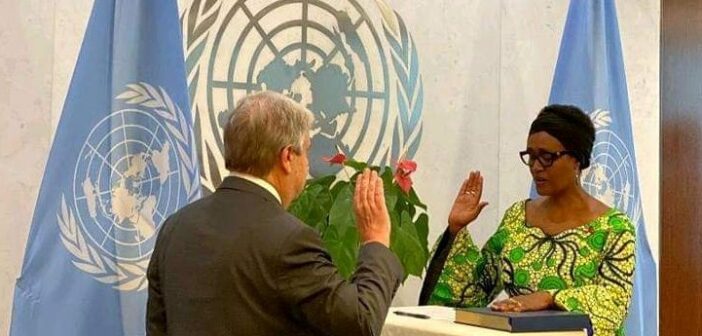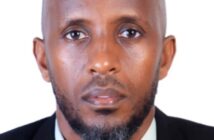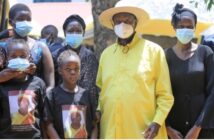Winnie Byanyima was Thursday sworn in as UNAIDS Executive Director by United Nations Secretary-General Antonio Guterres during an oath ceremony at the UN headquarters in New York.
On Friday, Byanyima attended her first meeting of the Committee of Cosponsoring Organizations and spoke about the next UNAIDS strategy and the need to work together across the Cosponsors for greater impact and to remove the barriers stopping people from accessing the services they need.
Byanyima committed to step up action towards ending AIDS, eliminate social injustice and reach the women and girls being left behind.

Full statement:
This year marks the 25th anniversary of the International Conference on Population and Development (ICPD), where 179 governments adopted a landmark Programme of Action.
The Programme of Action unequivocally affirmed reproductive rights as human rights, fundamental to the empowerment of women and girls and to achieving gender equality and sustainable development more broadly.
From 12 to 14 November, the governments of Kenya and Denmark, together with the United Nations Population Fund (UNFPA), are co-convening the Nairobi Summit to mobilize the political will and financial commitments needed to finally and fully implement the Programme of Action.
During the conference, UNAIDS will be reinforcing the importance of HIV prevention, treatment and care as integral to the ICPD agenda.
UNAIDS will also be advocating for sexual and reproductive health services for all and access to services that work for and address the needs of adolescent girls and young women.
On the opening day of the conference the Executive Director of UNAIDS Winnie Byanyima made a statement of commitment on behalf of the UNAIDS Secretariat to step up action towards ending AIDS, eliminate social injustice and reach the women and girls being left behind.
I, the Executive Director of UNAIDS, as a co-convenor of the Global HIV Prevention Coalition (GPC), will step it up on the unfinished business of the ICPD Programme of Action, the Beijing Declaration and Platform for Action, and the Political Declaration on HIV and AIDS.

Every week, 6,200 adolescent girls and young women acquire HIV. Maternal mortality is the leading killer of adolescent girls 15 to 19 years old. This is intolerable, unethical, unconscionable—25 years after Cairo.
Despite progress in HIV prevention for adolescent girls and young women, we are leaving too many of them behind, especially those who face intersecting forms of stigma, discrimination and inequality. They face high risks of acquiring HIV and STIs, unwanted pregnancies, unsafe abortions, and being subjected to gender-based violence and harmful practices.
This is no surprise; gender norms and taboos about their sexual and reproductive lives and rights are pervasive; access to comprehensive sexuality education remains limited; and the low quality of services restricts choice and falls short of providing young women with the range of interventions they require for their empowerment.
The GPC estimates that in 2018, less than half of the areas with high HIV prevalence had dedicated comprehensive HIV prevention programmes—very short of the global target of reaching 90% of adolescent girls and women with these services by 2020.
Meanwhile, we have the know-how to put the power of prevention in their hands and fulfill their rights. We must act urgently to listen to them, to do right by them; and make UHC work for them.
We commend the 28 Ministers from countries with the highest HIV burdens for their political leadership and commitments announced here in Nairobi on 11 November during the GPC Ministerial meeting.
We also heard the calls for action and demands from young women. Our commitment is dedicated to all adolescent girls, and all young people, particularly those from key populations around the world confronted by the HIV epidemic.
UNAIDS commits, at the highest levels, in collaboration with our sister entities of the UNAIDS Joint Programme and wider UN family, to drive decisive political will on HIV prevention and young women’s sexual and reproductive health and rights.
Through our collective support to national governments, and with the active participation of civil society and communities of women and young people, in all their diversity, in our decision-making;
Specifically in the African continent, where young women are hardest hit by the epidemic, we commit to pursue a strategic initiative with UNFPA and UN Women to remove the barriers and harmful social norms which result in their higher vulnerability to HIV.



